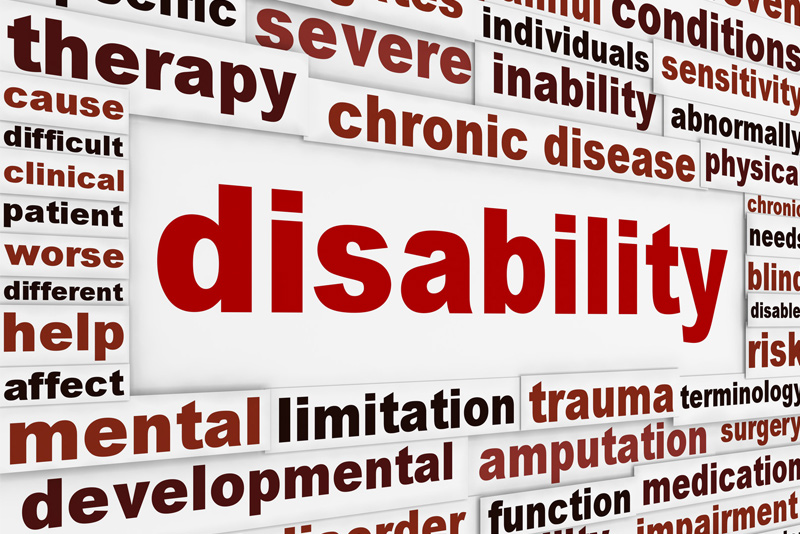Disability benefit recipients, whether SSDI (Social Security Disability Insurance) or SSI (Supplemental Security Income) benefit recipients, should know that their medical condition will be reviewed from time to time by the SSA (Social Security Administration). This is to make sure that the beneficiary continues to have a qualifying disability. Medical records services become useful to study the medical records and other healthcare documentation that provide proof of the medical condition or disability. This review process provides the beneficiary the opportunity to show that he/she still has an impairment, and ensures that the benefits are not stopped.
Here are some important facts of disability reviews that may be useful for attorneys as well as the disability recipients to know.
- CDRs or continuing disability reviews are of two types, work continuing disability reviews and medical continuing disability reviews.
- For the former, the SSA considers the beneficiary’s earnings to determine if he or she is earning more than the SGA or substantial gainful activity. For 2021, the monthly SGA amount for statutorily blind individuals is $2,190 and for non-blind individuals, it is $1,310. SGA for the blind doesn’t apply to SSI benefits whereas SGA for the non-blind disabled applies to SSDI and SSI benefits.
- A medical continuing disability review is performed to find out whether the disabled person is meeting the medical requirements to collect disability benefits. A disabled beneficiary needn’t undergo a medical CDR based on work activity alone if they have received disability benefits for at least 24 months, or are participating in the SSA’s Ticket to Work program. A beneficiary qualifying for protection from a medical CDR based on work activity, will still have to undergo a regularly scheduled medical CDR.
- Frequency of medical CDRs is based on the severity of the beneficiary’s condition.
- If medical improvement is “expected,” the review may be held within 6 to 18 months after benefits start.
- If medical improvement is “possible,” the review will normally be no sooner than 3 years.
- If medical improvement is “not expected,” the case will be reviewed typically no sooner than 5 to 7 years.
- The disability benefits cannot be terminated unless the SSA finds significant evidence of medical improvement that enables the beneficiary to engage in substantial employment. If the beneficiary shows no sign of improvement and his/her disability still prevents them from working, the SSA will not take any action. However, benefits will be discontinued in the event of at least one of the following findings.
- The beneficiary has improved medically and is able to engage in substantial gainful activity.
- The disability is found to be not as disabling as earlier thought, based on new, advanced diagnostic techniques.
- The beneficiary has benefited from advances in medical or vocational therapy/technology, or has undergone vocational therapy and is now able to perform SGA.
- The earlier determination of disability was in error. For this, proof is provided by the medical record or other newly obtained evidence.
- The SSA can terminate a disability recipient’s benefits if:
- The beneficiary is found to be engaging in SGA
- The beneficiary cannot be located, or fails without good cause to cooperate in the Continuing Disability Review
- The beneficiary’s prior determination of disability was fraudulently obtained
- The beneficiary doesn’t follow the prescribed medical treatment meant to restore work capacity.
- The SSA provides a “trial work period”: Utilizing this option, disability recipients can attempt to return to work. During this trial work period, the beneficiary can earn and still collect benefits.
- A beneficiary may be able to collect benefits (including Medicare) even if he or she is no longer considered medically eligible: This is possible if the disabled person participates in any approved public or private rehabilitation program before his/her eligibility ended; and the SSA determines that the program is likely to increase their permanent independence and self-sufficiency.
- A CDR decision can be appealed: If the Social Security Administration determines that the beneficiary is no longer disabled and stops the benefit payment, the beneficiary can appeal the decision within 60 days.
- Provisional benefits can be requested during the appeal process: While the beneficiary’s case is being reviewed, the SSA can provide provisional benefits, including Medicare, for up to 6 months. These provisional benefits need not be repaid even if the appeal is denied. It is important to submit the Request for Reconsideration within 10 days of receiving the denial. A specific request must be made for continuation of benefits during the appeal process.
- If a beneficiary becomes ineligible under a work review, the benefits can be restarted.
- If a beneficiary is participating in the SSA’s Ticket to Work program, the SSA will not schedule him/her for a medical CDR. This is when the beneficiary has assigned his or her Ticket to an approved service provider before they receive notice of a medical CDR. If a medical CDR had been scheduled before the Ticket was assigned, the SSA will continue with the continuing disability review.
Disability attorneys and providers of medical review services for such attorneys stay updated with the above-mentioned as well as other relevant facts related to social security disability programs. If a CDR results in termination of disability benefits, beneficiaries can appeal the decision with the efficient support of a social security disability attorney.
Disclaimer: The content in this blog is meant for informative purposes only, and is sourced from reliable internet resources. It does not reflect the opinions or premises of MOS or any of its stakeholders. For a professional opinion, consult a social security disability attorney.




